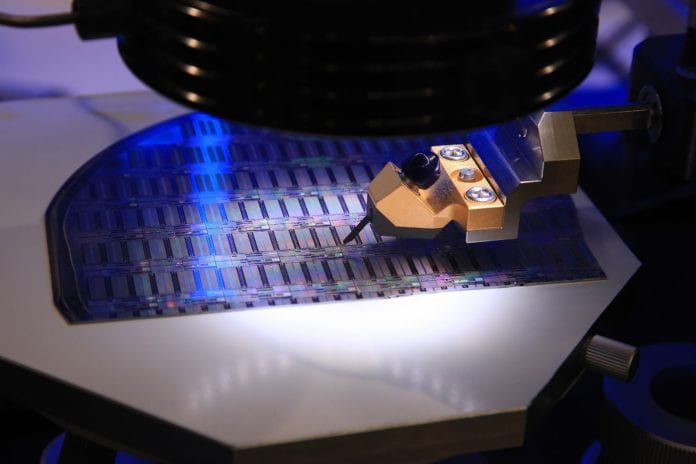Smaller, more complex chipsets mean a bigger market for SoC test equipment.
Research firm TechNavio expects the global market for system-on-chip test equipment to grow at an annual compound growth rate of more than 2% over the next few years.
The company cited increased digitization and automation across industries as leading to more chipsets in devices and increased complexities in SoCs, thus boosting the need for SoC test equipment. Other factors TechNavio said were driving the test equipment market for SoCs include momentum in the internet of things space; electronic devices getting smaller, with integrated components and features reducing overall power consumption, including “ultra-miniature” circuits with line widths in the 10-nanometer range; and continued growth in the demand for smartphones, tablets and other consumer electronics.
In other test news:
–National Instruments worked with AT&T to develop a proprietary 5G channel sounder dubbed the “Porcupine.” Read the full story here. Also this week, NI announced it is donating nearly $1 million in test hardware and software to New York University’s Wireless labs for “5G” systems research, including millimeter wave, channel measurement and channel emulation research.
–Ixia shareholders have approved the $1.6 billion sale of the company to Keysight Technologies. Ixia shareholders will receive $19.65 per share in cash. The merger could close as soon this month, according to Ixia.
–Whitespace Alliance published a test vector format for certifying compliance with the Wi-FAR specification for TV white space interoperability. The test vector format covers both the physical layer and media access control layer transmissions between base stations and customer premise equipment for the Wi-FAR standard, which the WSA developed as a derivative of IEEE’s 802.22 point-to-multipoint wireless broadband.
The testing information is available to WSA members.
–P3 Group is expanding its test offerings in Latin America, including drive- and walk-tests as well as device-based measurements and technical analysis. The company’s team in Latin America is led by P3 Communications CEO Dirk Bernhardt and based in Sao Paulo, Brazil.
–MTS saw its revenues expand 15% year-over-year for its fiscal 2016 to $650 million, and the company said it has addressed issues in its Chinese operations that led it to delay financial reporting and investigate whether its employees there had acted unethically and were collaborating with a competitor.
“The investigation … confirmed that certain employees involved with our China Test business violated our code of conduct by starting a company that competes with MTS in the low end of the materials test market within China. Importantly, the investigation did not find any evidence of intellectual property theft,” said Jeffrey Graves, president and CEO of MTS Systems, in a company statement. “However, the investigation did identify opportunities to enhance our processes and controls related to the adherence with our code of conduct and compliance policies and procedures, with particular focus on those related to third-party sales of our products and local sourcing activities. Numerous steps are being taken to improve our oversight activities in these areas, including the creation of a new ‘chief risk and compliance officer’ on my executive staff.”
In terms of financial results (pdf), MTS reported its test services business had record full-year fiscal 2016 revenues of $86 million, up 9% year-over-year. First quarter revenues for the company for fiscal 2017 were $199 million, up 42%. About 10% of that growth came organically, MTS said, and 32% of it was a result of the company’s purchase last year of sensor company PCB.
Image copyright: sspopov / 123RF Stock Photo

